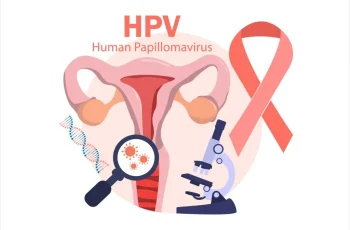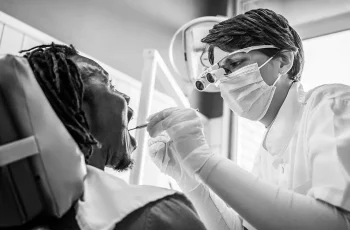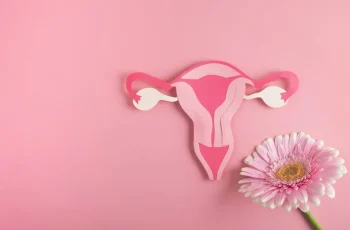Loss of libido, characterized by a reduced or absent sexual drive, affects approximately 20% of men at some point. Often linked to aging due to declining testosterone levels, it can also result from various physical, psychological, and lifestyle factors. This condition can lead to stress, depression, and strained relationships, significantly impacting quality of life. While conventional treatments like medications or hormone therapy are common, herbal remedies are increasingly explored as natural alternatives with potentially fewer side effects. However, their efficacy varies, and professional consultation is essential before use.

Causes of Loss of Libido
Several factors contribute to male libido loss:
- Hormonal Changes: Decreased testosterone levels, often associated with aging or medical conditions.
- Chronic Diseases: Conditions like diabetes, obesity, cardiovascular disease, cancer, or renal/hepatic disorders can impair sexual function.
- Substance Use: Regular alcohol consumption, smoking, or drug use (e.g., marijuana, opioids) can suppress libido.
- Medications: Drugs like antidepressants, corticosteroids, antifungals, or chemotherapy may reduce sexual drive.
- Mental Health: Depression, anxiety, or stress can diminish interest in sexual activities.
- Sleep Disorders: Sleep apnea disrupts hormone production, affecting libido.
Understanding the underlying cause is crucial for effective management.
Symptoms and Psychological Impact
The primary symptom is a lack of interest in sexual activities, which may manifest as reduced sexual thoughts, difficulty initiating intimacy, or disinterest in sexual stimulation. This can lead to emotional distress, including feelings of inadequacy, frustration, or depression. Relationship strain often follows, as partners may misinterpret the lack of interest as personal rejection. Addressing both physical and emotional aspects is vital for recovery.
Conventional Treatments
Conventional approaches focus on addressing the root cause:
- Hormone Therapy: Testosterone replacement for low levels.
- Medications: Drugs to treat erectile dysfunction or underlying conditions.
- Counseling: Therapy for psychological causes like depression or stress.
- Lifestyle Changes: Managing chronic diseases or reducing substance use.
These treatments are effective but may have side effects, prompting interest in herbal alternatives.
Herbal Remedies for Male Libido
Herbal remedies are often used to boost male libido, primarily by enhancing testosterone levels or improving blood flow to the genitals. Their effectiveness varies, and potential side effects or drug interactions necessitate medical consultation. Below are commonly explored herbs:
Yohimbe
Derived from African evergreen bark, yohimbe may improve sexual dysfunction by blocking receptors that inhibit erections and increasing nitric oxide for better genital blood flow. Available in capsules or tablets, it requires cautious use due to potential side effects like increased heart rate.
Ginkgo Biloba
Ginkgo biloba supplements enhance blood vessel dilation, potentially improving sexual function, especially in cases linked to antidepressants. Its blood-thinning properties require caution with medications like warfarin. Take as directed, typically in capsule form.
Fenugreek
Fenugreek seeds, used in Ayurvedic medicine, may stimulate sex hormone production, boosting libido. Supplements provide micronutrients but can cause gastric upset or interact with blood thinners. A typical dose is 500-600 mg daily.
Maca
Maca root, a Peruvian aphrodisiac, has research supporting its ability to enhance libido and alleviate antidepressant-related sexual dysfunction. Take 1.5-3.5 grams daily for weeks to months. Long-term effects are understudied.
Tribulus Terrestris
This plant may increase testosterone through androgen-related properties, potentially improving sexual response. Evidence is limited, and more research is needed. Available as capsules, follow dosage instructions carefully.
Red Ginseng
Used in Chinese medicine, red ginseng supports erectile function and libido. It may cause headaches or digestive issues and has blood-thinning effects. Take as capsules or tea, with medical guidance.
Avocados
Avocados, rich in vitamins C, D, and E, may lower cholesterol and support hormone production, aiding libido. Incorporate into diets as a natural aphrodisiac, but effects are not immediate.
Saffron
Saffron, a proven aphrodisiac, boosts libido, particularly in men on antidepressants. Use sparingly in cooking or as supplements due to its cost and potency.
Cinnamon
Cinnamon may enhance genital blood flow, supporting hormone delivery and toxin removal. Add to foods or take as capsules, but avoid excessive use to prevent irritation.
Black Ginger Extract
Black ginger may improve genital blood flow, supporting sexual function. Limited studies support its use, typically as capsules or tea.
Lifestyle Interventions
Beyond herbs, lifestyle changes can significantly improve libido:
- Exercise: Regular physical activity boosts testosterone and improves mood.
- Diet: A balanced diet rich in zinc, vitamin D, and omega-3s supports hormone health.
- Sleep: Treating sleep apnea and ensuring adequate rest enhances libido.
- Stress Management: Meditation or therapy reduces anxiety and depression.
- Substance Reduction: Limiting alcohol, tobacco, or drugs improves sexual function.
Importance of Medical Consultation
Herbal remedies carry risks of side effects (e.g., gastric issues, blood-thinning) and interactions with medications, especially for men with chronic conditions or on blood thinners. Consulting a healthcare provider, ideally one familiar with herbal treatments, ensures safe use tailored to the individual’s health profile and libido loss cause.

Conclusion
Loss of libido in men, affecting 1 in 5 at some point, stems from hormonal, medical, psychological, or lifestyle factors. Herbal remedies like yohimbe, maca, and saffron offer potential benefits by boosting testosterone or genital blood flow, but their efficacy varies, and scientific evidence is often limited. Conventional treatments and lifestyle changes remain critical for comprehensive management. Men experiencing persistent libido loss should seek professional medical advice to identify causes and develop a safe, effective treatment plan, combining herbs, lifestyle adjustments, and medical interventions for optimal outcomes.



